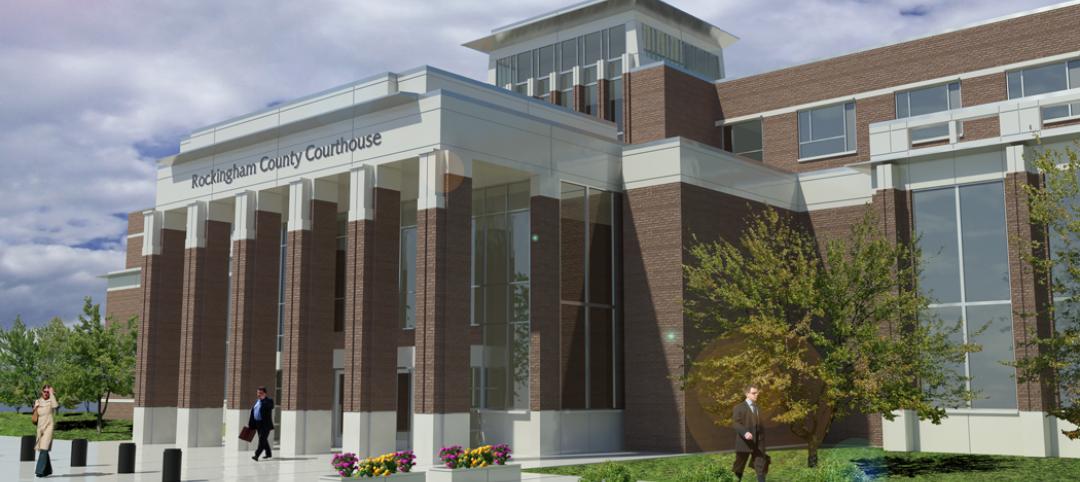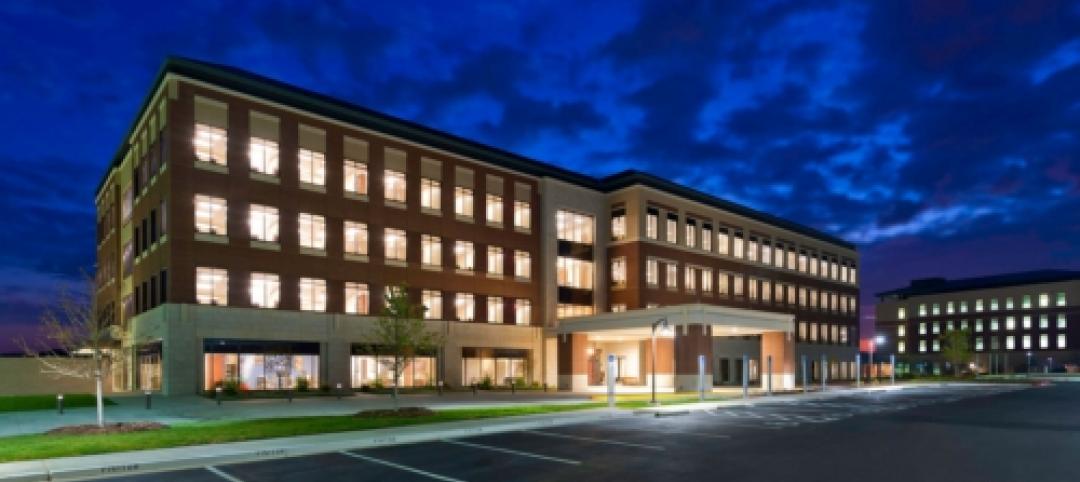This week, the Green Building Advisory Committee established by the General Services Administration (GSA), officially recommended to GSA that the LEED green building certification system be used for all GSA buildings as the best measure of building efficiency. The committee also conveyed that LEED should be the primary way to show how agency buildings use energy and water and that LEED standards are the most conducive to meet the Energy Independence and Security Act.
The Green Building Advisory Committee has evaluated more than 160 tools and systems since it began in 2011, and in February, GSA released a request for information (RFI) that publicly lauded the value of green building rating systems like LEED and asked for additional input into important issues that could help GSA accelerate and improve its green building work.
“GSA has been a leader in energy and sustainability, and we are thrilled to see the leaders in the public and private sectors continue to recommend LEED as the best choice for GSA to maintain its leadership status while improving sustainability, reducing energy and saving money for its buildings,” said Roger Platt, senior vice president of Global Policy & Law, USGBC. “Consensus-based and market-driven, LEED has been and continues to be invaluable to thousands of building professionals and remains the best option for the GSA and any governmental agency looking to save taxpayer dollars and increase energy efficiency.”
According to an article released this week by Federal News Radio, GSA received more than 400 comments from 162 stakeholders from all facets of the building and academic industries as well as local federal and local government agencies. The full list of comments will be released later this spring, but the recommendation to use LEED comes from a study of more than 160 tools and standards, which found only three of them addressed the entire building system.
“Every single time green building and LEED have been evaluated by our most prestigious institutions, like the National Academy of Sciences, the National Research Council and the National Laboratories, the practice or green building and LEED certification has been shown to save taxpayer dollars and increase energy efficiency,” continued Platt. “Lawmakers should see these repeated conclusions and continue supporting public sector use of LEED.”
A study done by The Pacific Northwest National Laboratory (PNNL) found that GSA LEED certified buildings used 25 percent less energy than the national average and cost 19 percent less to operate. GSA’s application of LEED has helped in the agency’s building efficiency efforts, and there are now more than 4,000 LEED certified government projects with another 8,000 in the pipeline as registered projects. A recent report from GSA shows the agency has successfully reduced its energy use by almost 20 percent since 2003 and water use by almost 15 percent since 2007.
In addition, in a letter to GSA in July of 2012, 1,260 companies from the green building industry opposed deviating from LEED in federal facilities because such a change would add cost to the building and leasing process across the building industry.
To see why LEED is the only rating system diverse and dynamic enough to continue to drive market transformation, check out our latest infographic that shows LEED in motion.
About LEED
As the most widely recognized and widely used green building program across the globe, LEED is transforming buildings, homes and communities in all 50 states and 135 countries. LEED guides the design, construction, operations and maintenance of nearly 50,000 projects worldwide, comprising 9.3 billion square feet of commercial and institutional construction space, and nearly 117,000 additional residential units. By using less energy, LEED-certified spaces save money for families, businesses and taxpayers; reduce carbon emissions; and contribute to a healthier environment for residents, workers and the larger community. Learn more at usgbc.org/leed.
About the U.S. Green Building Council
The U.S. Green Building Council (USGBC) is committed to a prosperous and sustainable future through cost-efficient and energy-saving green buildings. USGBC works toward its mission of market transformation through its LEED green building program, robust educational offerings, a nationwide network of chapters and affiliates, the annual Greenbuild International Conference & Expo, and advocacy in support of public policy that encourages and enables green buildings and communities. For more information, visit usgbc.org.
Related Stories
| Jan 24, 2012
Rockingham County Judicial Center receives USGBC Gold NC v.2.2
The Rockingham facility is the first judicial center in North Carolina to seek certification from the U.S. Green Building Council’s LEED Building rating system.
| Jan 19, 2012
LEED puts the 'Gold' in Riverside golden arches
McDonald's restaurant recognized for significant energy savings.
| Jan 19, 2012
Odebrecht and Braskem bring sustainable award to U.S. university students
The Odebrecht Award for sustainable development rewards future leaders in engineering and chemistry.
| Jan 19, 2012
BOKA Powell-designed facility at Texas A&M Bryan campus
The new facility provides programs for the Texas A&M Health Science Center, the Texas Brain and Spine Institute, Mary Crowley Cancer Research Centers, and Blinn College Allied Health programs.
| Jan 17, 2012
SOM Chicago wins competition to design China's Suzhou Center
The 75-level building is designed to accommodate a complex mixed-use program including office, service apartments, hotel and retail on a 37,000 sm site.
| Jan 17, 2012
FxFowle and CO Architects form joint venture
FxFowle and CO Architects creates a dynamic alliance built on a shared dedication to collaboration in process, innovation in programming, and excellence in design.
| Jan 17, 2012
Capital Engineering joins AECOM
With 160 employees based in Taipei and Kaohsiung, CEC specializes in environmental, water, hydraulic and land development engineering consulting services for clients in Taiwan's public and private sectors.
| Jan 17, 2012
SOM launches Los Angeles design studio
Expert team to join the firm's West Coast practice, focusing on innovative urban and environmentally sustainable design in Southern California
| Jan 16, 2012
2012 40 Under 40 applications due Friday, Jan. 20
Building Design+Construction's 40 Under 40 is open to AEC professionals from around the world who are under 40 years old, as of January 1, 2012.
| Jan 16, 2012
Mid-Continent Tower wins 25 Year Award from AIA Eastern Oklahoma
Designed by Dewberry, iconic tower defines Tulsa’s skyline.

















